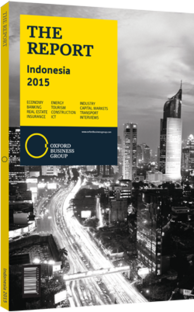Susi Pudjiastuti, Minister of Maritime Affairs and Fisheries: Interview

Interview: Susi Pudjiastuti
What are the immediate priorities for the Ministry of Maritime Affairs and Fisheries?
SUSI PUDJIASTUTI: This administration is bringing the right mindset at the right time. Indonesia has lost many years in regard to its maritime affairs. We have traditionally been an agricultural country, but President Joko Widodo and the vice-president, Jusuf Kalla, are trying to capitalise on the fact that we are a maritime country, with two-thirds of our territory covered by water, boosting our capabilities in this sector and increasing its contribution to national economic growth.
Fisheries have been downgraded in recent years, and 115 Indonesian seafood exporters went out of business between 2003 and 2013. Meanwhile, the number of households that get their income from fishing fell from 1.6m to 800,000, and consequently billions of dollars vanished from our portfolio. We need to turn things around, and sustainability is key. Good business practices and careful exploitation of our marine natural resources will be essential to ensure that future generations enjoy the benefits of our waters.
The main issue is illegal fishing, and this will be the main priority for our ministry moving forward. Thousands of illegal foreign vessels have fished in our waters. We have also seen legal vessels duplicate their licences and overexploit our resources. Sustainability has been missing, and for many years we overlooked this. However, we are collaborating with partner countries to tackle this important issue, which affects all of us. In the last quarter of 2014, after only three months of addressing illegal fishing, the national fisheries industry grew by 8.9%. In the first quarter of 2015, the number was 8.6%, while the rest of the country grew 4.1%. This is a direct result of our action on illegal fishing, and our efforts will continue in this direction.
How are you attracting investors to develop the fisheries industry in Indonesia?
PUDJIASTUTI: Due to our geographic location, Indonesia can and should become the centre for maritime activity. Approximately 60% of tuna movements pass through Indonesian waters. We should capitalise on this fact, strengthening our position first domestically, and then regionally and globally.
We need to carry out an internal restructuring of maritime priorities, so that we can move forward in a better and more organised manner. This is what we are doing at the moment, and therefore the opportunities for investment are significant. Investors know that there is a renewed hope and that there are great business opportunities in Indonesia. In fact, the Ministry of Maritime Affairs and Fisheries recently signed a $500m memorandum of understanding with the country’s Financial Services Authority to finance companies in the fisheries industry in Indonesia.
The main aspects to address are sustainability and traceability. We also need to ensure an ethical approach to any activity related to the maritime sector. In this administration we are fully committed to complying with these premises, and we seek the same kind of attention from domestic and international investors.
How are you helping Indonesian fishermen take advantage of IT more efficiently to improve their performance at sea?
PUDJIASTUTI: IT should be made available to the entire industry. In fact, we have already opened all of our maritime data to the public. We need greater transparency. For example, our data on plankton movements is now available online, and this helps fishermen know where to fish and at what time, improving efficiency and reducing risks. Some may argue that if this data is widely available, businesses will suffer as everyone will fish in the same locations. This will not be the case, as businesses will find their own way to carry out their activities in the most efficient manner, promoting healthy competition. With the right tools, regulations and information in place, we are confident our domestic industry will continue to thrive, strengthening our position as the world maritime power we should be.
You have reached the limit of premium articles you can view for free.
Choose from the options below to purchase print or digital editions of our Reports. You can also purchase a website subscription giving you unlimited access to all of our Reports online for 12 months.
If you have already purchased this Report or have a website subscription, please login to continue.

